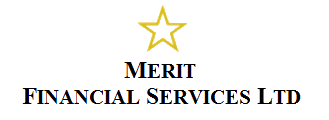 Nobody wants to pay more tax than they have to, but it is a truism that “in this world nothing can be said to be certain, except death and taxes” (Benjamin Franklin – 13th November 1789). However, this is no reason why people should not seek legally to minimise the amount of tax they pay.Income and capital gains tax
Nobody wants to pay more tax than they have to, but it is a truism that “in this world nothing can be said to be certain, except death and taxes” (Benjamin Franklin – 13th November 1789). However, this is no reason why people should not seek legally to minimise the amount of tax they pay.Income and capital gains taxEveryone can potentially reduce the impact of tax by investing in personal pensions, because even with little or no earnings you are allowed to put £2,880 into a pension scheme each year and have this “grossed up” to an investment value of £3,600, by HM Revenue & Customs adding a further £720 to the pot on their behalf.Tax relief on contributions is allowable for everyone. For people with little or no earnings, tax relief is available until total contributions for the year reach £3,600. For all others, tax relief is available up to 100% of earnings (subject to the annual allowance) at the highest marginal rate of tax they pay. Personal contributions above this level do not attract tax relief and employer contributions above the annual allowance involve a hefty tax penalty.The money invested in pensions is not subject to UK income or capital gains taxes, although it is no longer possible to recover the 10% tax deducted from dividends from UK companies.What is more, when the time comes to take benefits, it is currently possible to take as much as 25% of the total fund (but mot more than 25% of the lifetime allowance) as tax free cash – even if you do not wish to draw a taxable income from the fund at the same time (the minimum age to take benefits is currently 55). Any income drawn, either directly from the fund or though the purchase of an annuity, is taxed in the normal way.
It is also possible to protect savings from tax through Individual Savings Accounts (ISAs), which the current government has expressed its commitment to making a permanent feature of the investment landscape. In addition, the difference between mini- and maxi- ISAs has been removed and it is now possible to move money previously invested in cash into stocks and shares (but not vice versa). The maximum that can be invested is now £11,280 (tax year 2012/2013) up to half of which can be in cash.
We can also offer advice on strategies to minimise the impact of capital gains tax.
Inheritance tax
Inheritance tax is levied on monies passed to other parties on death. It includes most gifts, other than small items and potentially exempt gifts (see below) made during the previous seven years. It is levied at 40% on individual estates worth in excess of a threshold set at £325,000 (for 2012/2013). From 9th October 2007, however, it is possible to transfer any unused personal allowance from a late spouse or civil partner to the second spouse or civil partner when they die. This effectively increases the personal allowance of the second spouse or civil partner to £650,000, depending on the circumstances.
Other ways of minimising the potential inheritance tax liability are by transferring money to family and friends by using exempt transfers, which include:
- Up to £3,000 a year, per donor;
- Small gifts of up to £250 per recipient;
- Gifts on consideration of marriage (or civil partnership) from £1,000 to £5,000 depending on relationship to the couple;
- Gifts from normal income expenditure.
There are also potentially exempt transfers (PETs). These are gifts made between three and seven years prior to death, where the tax can be reduced by as much as 80% and gifts made more than seven years before death, which are totally free of inheritance tax.
THE LEVELS AND BASIS OF AND RELIEFS FROM TAXATION ARE SUBJECT TO CHANGE AND THEIR VALUE DEPENDS ON THE INDIVIDUAL CIRCUMSTANCES OF THE INVESTOR. THE FINANCIAL SERVICES AUTHORITY DOES NOT REGULATE TAXATION AND TRUST ADVICE AND WILL WRITING.

